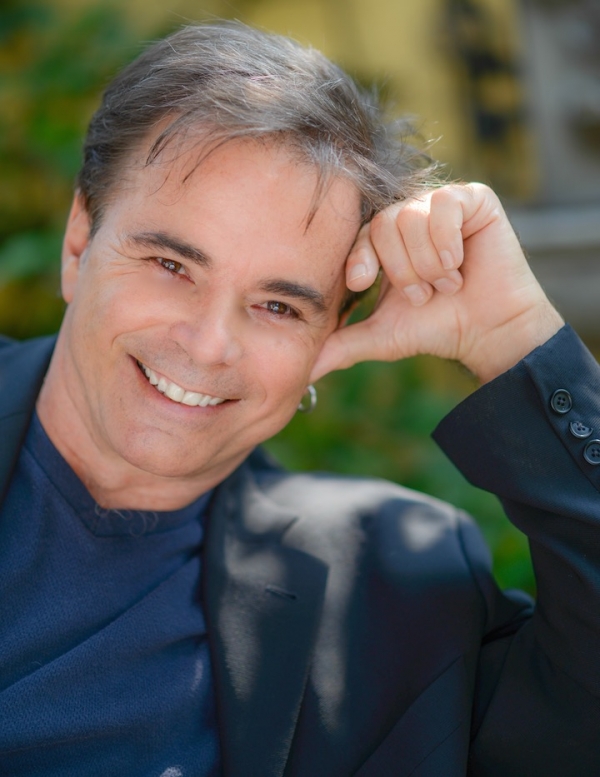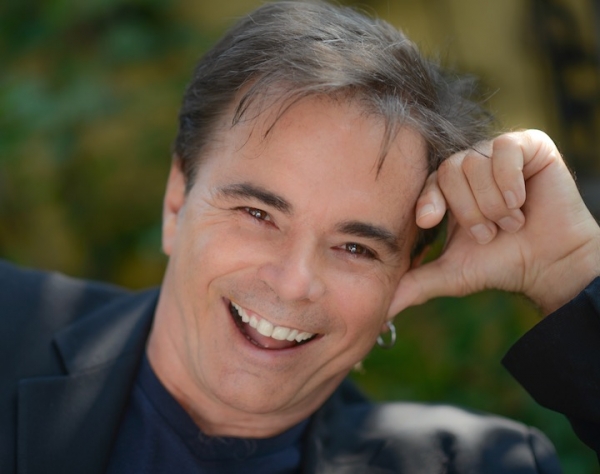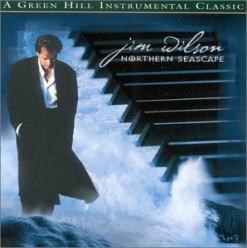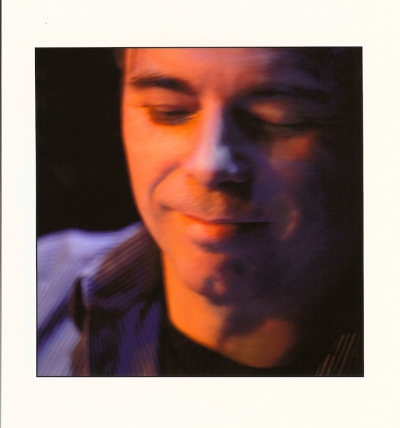I recently received a promotional email from pianist/ composer/ producer Jim Wilson announcing a new single and video in collaboration with Americana/folk legend Arlo Guthrie (“Alice’s Restaurant” and many other hits), one of my music heroes from high school forward. The song they arranged and recorded is “Hard Times Come Again No More,” written many years ago by American composer/songwriter Stephen Collins Foster (1826-1864) with a new verse added as an epilogue. I emailed Jim and told him I really wanted to review the project, so he sent me some preview links so I could have the review ready to go on the release day. I was blown away! I’ve reviewed several of Jim’s albums over the years and Michael Debbage interviewed him back in
2004. This seemed like a perfect time to do an updated interview, so we did!
KP: Hey Jim! How is it going in Southern CA today?
JW: Hi Kathy… Thanks for asking. All is well here. Took a ride in a nearby park today just to try to reconnect with nature. Such dark times we are going through!
KP: I agree! Getting out in nature and seeing beauty and some sense of “normalcy” there helps the morale.
You did an interview with Michael Debbage back in
April 2004 so we’ll focus on the present and more recent past. Let’s start with “Hard Times Come Again No More,” your new single with Arlo Guthrie. How did working with Arlo on this project come to pass?
JW: I met Arlo 20 years ago at a Grammy event at the Biltmore in downtown LA. Chatted with him briefly, exchanged email addresses and we’d drop each other notes from time to time. In May, a couple of months into the pandemic, Arlo sent me an email out of the blue. He said he’d had an idea for a reinterpretation of the old Stephen Foster classic, “Hard Times Come Again No More.” He said “stop me if I’m crazy, but I can hear me singing and you playing your wonderful piano voicings on a reinterpretation of this song for the current hard times and fall out from the pandemic.”
KP: That had to be a really nice surprise! You are listed as the producer for the single as well as the companion video (more about that in a minute!). Did you choose the other musicians who played on the single?
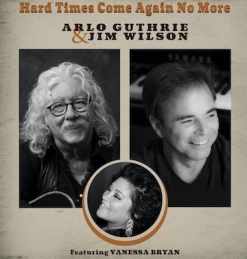
Click on the album cover
to go to Kathy's review.
JW: Yes. As is my usual first step, I called my arranger and friend of many years Brad Cole (Musical Director for Phil Collins for decades) in Nashville to see if he wanted to be involved in the project. He is amazing and has a wide, wide set of influences to draw upon. Truly a genius. Besides arranging “Hard Times,” playing keyboards and accordion on it, he mixed and mastered it as well.
KP: There are some heavy-hitters in the music industry on that record! That must have been fun!
JW: It was a blast. I’ve worked with Brad and Charlie (Morgan, drummer for Elton [John] for 14 years) for many years. I’m forever in their debt for what they have brought to my career. I got the idea to reach out to Andy McKee to see if he would be up for joining us on this track. I’ve been a fan of his for a long time and was eager to find an opportunity to work with him. I reached out to him and 72 hours later, he sent me his part, which was so incredibly perfect for the track. … And getting to work with Stanley [Clark] was an absolute dream. I’ve known him for decades, but never reached out to him on that level. To my absolute delight, he said “yes” without hesitating. The icing on the cake was stumbling on Vanessa Bryan who really took the track to the next level with her vocals and the incredible choir arrangement she did. She lined up Dasha Chadwick and Nic Jackson, too. Just phenomenal singers. My pal Dillon O’Brian had laid down some temp vocal tracks early on and it was Brad Cole’s brilliant idea to incorporate Dillon’s “choir” into the final track. (That’s Dillon answering “lingered,” etc.)
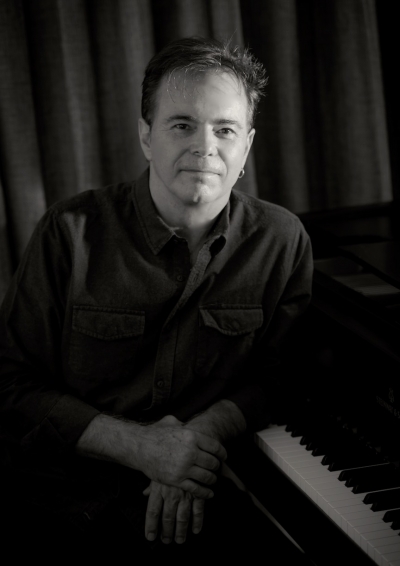
KP: I understand that all of the performances were done remotely. Did you record each part separately?
JW: Indeed, all the individual components were recorded separately. I started with a midi file of my piano performance and sent it to my arranger / engineer Brad. We started building the arrangement around that using my piano sound in “Keyscape.” He also played accordion. Then we sent the basic tracks to other players to have them record their parts. Everybody self taped as well.
KP: How did you manage to take all of the parts and make them flow together so seamlessly? It’s amazing - especially watching
the video since you can see just how many people were involved.
JW: It was indeed a bit of a three ring circus trying to keep all the files together. Especially considering that we were not only getting audio files from 10 different people, we were also receiving the videos of their performances. They were all gracious enough to self tape for us. It was my genius video editor David Beeler who was able to cobble all those elements together under one roof.
KP: That’s really impressive! You mentioned in your announcement about the single that you had been a big Arlo Guthrie fan in high school. I was, too, and have several LPs of his early music (I don’t throw anything like that away!). I also saw him in concert several times. I hadn’t heard much about him for the last bunch of years and didn’t know he was still recording and performing. Do you have plans to meet up when the restrictions on travel are lifted?
JW: This is indeed a new world we’re living in, so the reality of when I’ll be able to meet him again properly remains in question. I do however video chat with him and his daughter Annie quite frequently. I have a bottle of scotch sitting on my mantle that is reserved for Grammy nomination day. If the news is favorable, Arlo knows that I’m gonna be on FaceTime with him and I will break open that bottle of Talisker 10 so we can enjoy a celebratory toast. I don’t care what time of day it is!
KP: I really hope that happens! You guys deserve it!
Let’s talk about
the video for “Hard Times Come Again No More.” Did you choose the photos for the video?
JW: I worked very closely with my video guy, David Beeler, on the selection of those photos. FYI, the final version that we’re looking at is “version 14.” We’d go a certain direction and then we’d scrap that. Went another direction, then George Floyd and BLM happens. Obviously had to address that. Once we finally landed on using Arlo‘s dad‘s image [the late Woody Guthrie] early on in the video, it pointed us in the direction of what time period we wanted to focus on. Obviously, Woody was the definitive songwriter for the Dustbowl Era. That gave us a really great way to frame where we wanted to go with it. David chose most of the images, but we shaped and crafted them together. I had a concept for the epilogue verse, starting with the sunrise, then using all color images. I sought out and found most of those images and some of them say so much with so little: a black and white handshaking, the George Floyd casket, the black guy hugging the police officer. That last one levels me every time I see that.
KP: The editing and flow of the video are flawless. Do you make a lot of videos?
JW: Thanks. Yeah, overall I guess I’ve made a couple dozen videos. And I guess you could say I’m a pretty hands-on kind a guy with everything I produce. It’s been that way for everything I’ve created over the last 20 years - from the choice of parts to be played, to every nanosecond of the mix. The mix is my favorite part because it’s the exact moment when what was first a melody floating around in your brain, that’s evolved and grown slowly, finally makes its entrance into the real world. It becomes a physical thing then.
Regarding the video, yes, I kept refining it with David, getting longer and smoother dissolves, making sure that we got the point across, but weren’t too on the nose. David is a brilliant dude, good friend, and it’s a delight to work with him.
KP: I love that the first 2/3 of the video is in black and white - including the videos of the musicians - and then the new epilogue verse is in color, bringing the whole thing into the present. Was that your idea?
JW: I crafted that whole epilogue verse with David. The first part of the song has always been sepia tone, with “super eight dirt” on top of that to give it a vintage look. Can’t remember the exact moment that we arrived at the idea that the entire body of the video should be black and white, and that we should wait until the epilogue verse to switch over to color. But man, I’m so proud of how that epilogue verse really lands.
KP: It really brings the whole song home! Did Arlo write the new verse?
JW: Along with myself and David Beeler, yes. The evolution of that is that I told David that I wanted to end on an optimistic, “This too shall pass” note, sending them off with a ray of hope. He in fact is to be credited with the idea of adding an epilogue verse at all. He threw out the idea, suggested some lines, I tweaked them a little bit, Arlo tweaked them a bit more. It’s a collaborative effort, but we really have David to thank for the genesis of it.
KP: I know it’s been a very short time since they were released, but how are the single and video being received so far?
JW: The first few days were a tsunami of incredible responses on social media, email, etc. It was trending on YouTube for a bit and continues to be shared a lot. We were up to 40K views when I last checked. It’s so incredibly gratifying to be offering this at a time when its message can be of value to people.
KP: I shared the link on FaceBook, too, and the responses have been hugely positive.
Have you done a lot of production work with other artists?
JW: Not exactly in this way, but I’ve had many guest artists on my recordings in the past. I’m honored beyond belief. The most fun story along those lines that comes to mind is working with my buddy Dan Fogelberg. Dan came to know and respect my work after having worked with me on my first record, Northern Seascape. On my second record, he played and sang on “ Picasso’s Midnight Stroll.” When I asked him if he would be on my Christmas record, he said, “Sure. Just show up at the ranch with tracks.” I couldn’t believe it. He was entrusting me to (a), pick a song, (b) pick the key, and (c) produce a track that wouldn’t embarrass him as an artist!
KP: Dan was one of my favorite singer/songwriters, and it’s so sad that we lost him so young.
I was surprised to learn a few years ago (from my friend Jeff Bjorck) that you are also a piano tuner/technician. How long have you been doing that?
JW: Indeed, before I moved to California, I was playing (bass) in two different bands and the keyboard players could tune pianos. I thought that might be a clever way to support myself while trying to make it in Los Angeles, and I found the best piano tuning school in America, Perkins’ School of Piano Tuning and Technology in Cleveland. I went there for a six months learning the craft. I’m forever grateful I did! I’m doing a lot less of that personally now but it’s been quite a gift to me over the years.
KP: You also helped to develop a MIDI-adaptor for the acoustic piano. How does that work?
JW: The credit for the invention goes to Steve Salani, who devised an adapter that can be installed underneath the keys and allows you to hook up synthesizers to your piano, or simply send the midi signal to the computer. Steve found me early on and I offered my input on the development from the very beginning.
KP: I read that you taught many very big name artists how to use the adaptor. When was the adaptor introduced?
JW: It was invented in the 80s, and took off immediately. For a number of years, I was the only guy on the planet you can get this thing from and I got flown to England a dozen times by [Paul] McCartney, Elton [John], Phil Collins, Keith Emerson, etc. It led to some surreal experiences: playing Beatles songs with Paul McCartney on the same piano bench, going to concerts with Elton John in a limo, hanging with the royalty of rock. It truly was a magic carpet ride!
KP: Wow! You must have a bunch of great stories!!! Do you by any chance know Steve Benjamins (my piano tuner/tech in CA)? He did a lot of touring with those guys about that time.
JW: Indeed I do. Lovely guy! Grateful to know him.
KP: Your most-recent album is Remembrance, which was released in 2018. Michael Debbage reviewed it first, and then I reviewed it the end of last year. I love it! You subtitled the album “A Collection of Cinematic Portraits.” Are most of the tracks on the album inspired by specific people and events?
JW: The genesis of that album was me taking a number of film score/movie theme ideas that I had and fashioning them into a collection of very cinematic pieces. There was indeed a song on there for my dear Aunt Billie Jo who had just passed away at the age of 97.
KP: I’m finding that a lot of artists are producing a lot of great new music during this COVID-19 pandemic. Is that true for you, too?
JW: Actually, yes. I realized that I had no excuse to keep putting off musical projects I had in mind. I finally got around to creating a video for an environmental song I wrote called “Our Children’s World.” I’m also writing a “protest song” that doesn’t sound like a protest song called “Cold November Night.” Then the Arlo email came and shot me in that direction big time!
KP: Are you currently performing at all?
JW: Alas, that has come to a screeching halt. Stephen Bishop and I were really looking forward to three sold-out gigs he had lined up in Glasgow, London, and Dublin. A dream gig! Needless to say, that went bye-bye along with any hopes of performing for the foreseeable future. In the blink of an eye, so very many friends of mine went from touring with major artists to sitting at home. What an extraordinary left hook 2020 had in store for us!
KP: Indeed! What’s up next for you?
JW: A hot bath, Uber eats, and a fun movie on Netflix! :) (And I have just begun working on my memoirs — we’ll see what happens!)
KP: Is there anything else you’d like to “talk” about?
JW: Wishing everybody health, happiness and prosperity. Stay safe!
KP: You, too!!!
Many thanks to Jim Wilson for thanking the time to chat! For more information about Jim and his music, be sure to visit
his website and his
Artist Page here on MainlyPiano.com.
Kathy Parsons
August 2020

